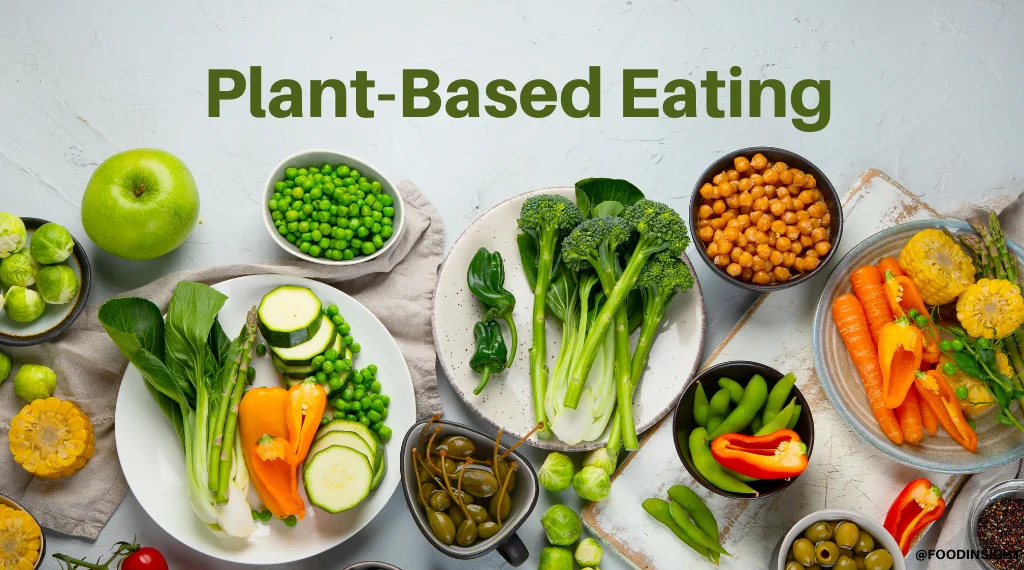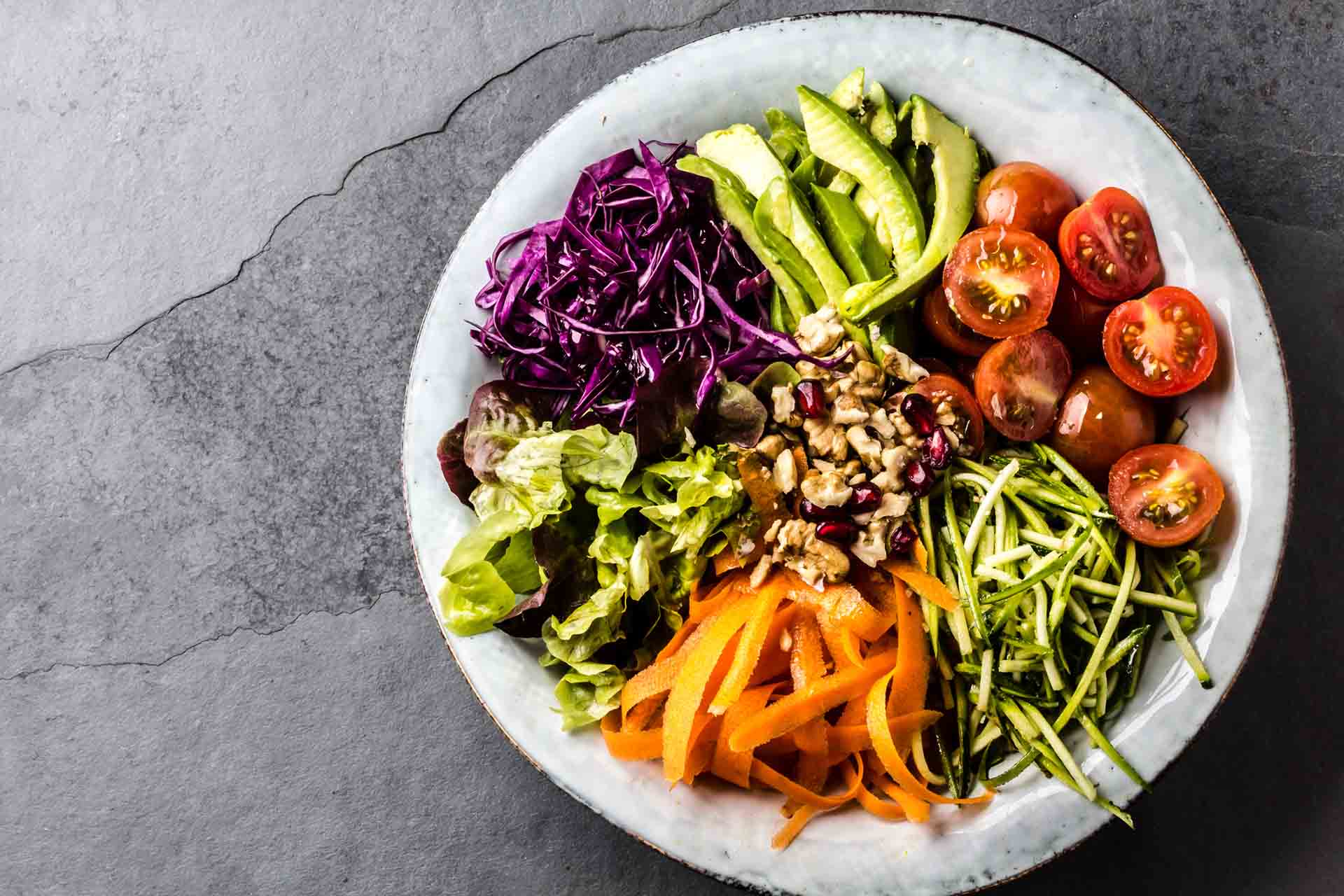Everything About Healthy Food: Benefits of Embracing Plant Based Options
The discussion bordering plant-based diet regimens has actually acquired significant attention in current years. Several people are exploring the prospective health benefits, dietary advantages, and ecological effects related to these dietary selections. As individuals end up being much more knowledgeable about their food's influence on wellness and sustainability, questions occur about the usefulness of embracing such a way of life. What particular changes can one anticipate, and exactly how might these options reshape not just personal wellness yet likewise the planet's future?
Recognizing Plant-Based Diet Plans
Although many individuals associate plant-based diet plans mainly with vegetarianism or veganism, these diet regimens can encompass a vast array of eating patterns that focus on whole, minimally refined plant foods. Such diets often consist of fruits, vegetables, entire grains, nuts, seeds, and vegetables, while eliminating or limiting pet products. This flexibility permits individuals to customize their nutritional choices according to nutritional needs and individual choices. Some may embrace a mainly plant-based diet regimen while still occasionally consuming meat or dairy products, usually referred to as a flexitarian approach. The emphasis stays on integrating even more plant foods, which can lead to a diverse array of meals and flavors. Understanding these various analyses of plant-based eating is crucial for appreciating its ease of access and charm in modern food culture.
Health Advantages of Plant-Based Foods
The health and wellness advantages of plant-based foods are significant, using a nutrient thickness benefit that supports general health. Study shows that these foods can boost heart health and play a necessary duty in reliable weight monitoring. By integrating a lot more plant-based choices, individuals may improve their nutritional selections and advertise long-term health.
Nutrient Density Advantage
Nutrient density plays a necessary duty in the health advantages of plant-based foods, making them an engaging option for those looking for a well balanced diet plan. Plant-based foods, such as fruits, veggies, vegetables, nuts, and whole grains, are typically abundant in vital vitamins, minerals, and antioxidants while being lower in calories. This high nutrient density allows people to consume less calories while still satisfying their nutritional demands. Additionally, these foods are packed with nutritional fiber, advertising digestion health and assisting in weight administration. By incorporating nutrient-dense plant-based options, consumers can improve their overall wellness, sustain their immune systems, and reduce the threat of chronic diseases. Inevitably, the nutrient thickness of plant-based foods emphasizes their value in a health-conscious lifestyle.
Heart Wellness Enhancement

Weight Administration Assistance
Along with advertising heart health and wellness, a plant-based diet can substantially aid in weight management. This nutritional approach stresses whole foods such as fruits, vegetables, legumes, nuts, and whole grains, which are generally lower in calories and greater in fiber contrasted to animal-based items. The high fiber material aids enhance satiety, minimizing total calorie intake. Plant-based diet plans are usually rich in necessary nutrients while reduced in harmful fats, making it much easier to keep a healthy weight. Research study shows that people who adopt a plant-based way of life often tend to have reduced body mass indexes (BMIs) and experience more successful weight reduction contrasted to those who take in meat-heavy diet regimens. Consequently, embracing plant-based alternatives is a tactical option for efficient weight monitoring
Nutritional Worth of Plant-Based Active Ingredients
Plant-based ingredients are rich in necessary nutrients, providing a varied variety of vitamins, minerals, and anti-oxidants that add to total health. A comparison of protein sources reveals that while animal products are frequently considered as exceptional, numerous plant-based choices supply ample healthy protein and various other useful substances. Recognizing the dietary worth of these components can help individuals make notified nutritional selections.
Necessary Nutrients in Plants
Nutrient-rich components discovered in plants use a diverse range of important vitamins and minerals that contribute greatly to overall wellness. These components are abundant in vitamins A, C, and K, which sustain immune function, vision, and blood clotting, specifically. Additionally, plants offer essential minerals such as magnesium, potassium, and calcium, essential for heart wellness, muscle mass function, and bone toughness. The existence of fiber in plant-based foods aids food digestion and promotes a healthy and balanced gut microbiome. Anti-oxidants, found perfectly in veggies and fruits, help fight oxidative tension and lower swelling. Lots of plant foods are reduced in calories yet high in nutrients, making them an outstanding choice for those seeking to keep a healthy weight while making sure ideal nutrient consumption.

Comparing Protein Resources
Protein resources differ significantly in their nutritional accounts, with plant-based active ingredients supplying one-of-a-kind benefits. Unlike animal proteins, which frequently include hydrogenated fats and cholesterol, plant healthy proteins have a tendency to be lower in these unhealthy parts. Legumes, nuts, seeds, and whole grains are rich in crucial amino acids, fiber, vitamins, and minerals. For example, lentils give high protein content along with considerable iron and folate, while quinoa is a complete healthy protein, using all nine crucial amino acids. Additionally, plant-based healthy proteins are often come with by anti-oxidants and phytochemicals that support general health. The shift to plant-based healthy protein resources not only improves dietary intake yet also straightens with lasting dietary techniques, decreasing ecological impact and promoting long-term health this website and wellness advantages.
Ecological Effect of Plant-Based Eating
As recognition of climate modification expands, numerous people are checking out sustainable dietary selections that can greatly reduce their ecological footprint. Plant-based consuming has actually become a significant contributor to lowering greenhouse gas exhausts, which are mainly connected with animals production. The cultivation of fruits, vegetables, grains, and vegetables commonly requires fewer resources, such as water and land, contrasted to pet farming. In addition, plant-based diet regimens can lead to lowered deforestation, as less land is needed for grazing livestock or growing pet feed. By changing in the direction of plant-based alternatives, customers can sustain biodiversity and promote healthier communities. Overall, embracing plant-based consuming not just advantages individual health yet also stands for a vital action towards ecological sustainability and conservation efforts.
Conquering Common Misconceptions
While several people identify the advantages of a plant-based diet, numerous mistaken beliefs typically prevent them from totally accepting this way of living. A typical belief is that plant-based diet plans lack adequate healthy protein; nonetheless, countless plant resources, such as legumes, nuts, and tofu, reference offer enough healthy protein. Additionally, some think that this diet plan is costly, when in truth, staples like beans, rice, and seasonal vegetables can be quite cost effective. One more false impression is that plant-based consuming is extremely limiting, whereas it really uses a diverse array of foods and tastes. Ultimately, many worry that a plant-based diet plan might bring about deficiencies, yet with proper planning, individuals can acquire all essential nutrients, including vitamins and minerals, while enjoying a wide variety of tasty meals.
Tips for Transitioning to a Plant-Based Way of life
Making the change to a plant-based lifestyle can be an enhancing experience, though it frequently calls for some guidance to navigate the first modifications. Individuals are encouraged to begin progressively, incorporating more fruits, veggies, legumes, and entire grains right into their dishes while decreasing meat and dairy products consumption. Dish preparation is essential; preparing a regular food selection can aid alleviate the change and avoid last-minute undesirable options. Exploring cooking techniques and new recipes can likewise improve the experience and preserve enjoyment regarding plant-based eating. Furthermore, joining assistance groups or neighborhoods can supply motivation and share valuable suggestions. Staying informed concerning nutrition assurances balanced meals, preventing shortages while fostering a healthy and balanced, gratifying plant-based way of life.

Delicious Plant-Based Dish Concepts
Exploring tasty plant-based dish ideas can influence people to embrace a more nourishing diet. One prominent choice is a passionate quinoa salad, featuring cherry tomatoes, cucumber, and a tangy lemon-tahini clothing. Another favorite is a mouthwatering lentil stew, loaded with carrots, celery, and great smelling natural herbs, excellent for a reassuring dinner. For morning meal, over night oats made with almond milk, chia seeds, and covered with fresh berries provide a healthy begin to the day. In addition, a vivid vegetable stir-fry with tofu and a variety of vibrant veggies can be a fast yet pleasing dish. Lastly, luscious avocado salute on whole-grain bread, sprinkled with seeds and spices, provides a basic yet delicious snack. These dishes showcase the range and richness of plant-based eating.

Regularly Asked Questions
Can a Plant-Based Diet Regimen Supply Sufficient Protein?
The inquiry of whether a plant-based diet plan can supply sufficient healthy protein is typical. Various resources, consisting of vegetables, nuts, seeds, and entire grains, can satisfy healthy protein needs properly, sustaining a nutritious and well balanced diet for individuals.
Are Plant-Based Diet Regimens Suitable for Kid?
The suitability of plant-based diet plans for youngsters relies on careful preparation. Appropriate nutrients should be assured, including healthy proteins, vitamins, and minerals. With proper guidance, such diets can home support healthy development and development in kids.
Just how Do I Eat in restaurants on a Plant-Based Diet plan?
Eating out on a plant-based diet includes looking for restaurants with diverse menus, requesting for adjustments, and checking out vegan-friendly alternatives. Planning ahead and interacting nutritional choices can enhance the dining experience while preserving nutritional selections.
What Prevail Irritants in Plant-Based Foods?
Common irritants in plant-based foods consist of soy, gluten, nuts, and seeds - Sugar Free Sauces. Individuals complying with a plant-based diet regimen needs to know these allergens and read labels very carefully to stay clear of adverse reactions and assure secure consumption
Can Plant-Based Diets Aid With Fat Burning?
Research shows that adopting a plant-based diet may facilitate weight reduction because of its commonly reduced calorie thickness and greater fiber web content. This mix can improve satiation, assisting individuals handle their caloric consumption effectively. Several individuals link plant-based diet regimens generally with vegetarianism or veganism, these diet plans can encompass a large variety of eating patterns that prioritize entire, minimally refined plant foods. Nutrient thickness plays an essential duty in the wellness advantages of plant-based foods, making them an engaging selection for those looking for a balanced diet. Plant-based diet regimens have actually been revealed to considerably enhance heart health, as they frequently contain components that sustain cardio function. In addition to advertising heart health, a plant-based diet plan can significantly aid in weight monitoring. A common idea is that plant-based diets lack sufficient healthy protein; nonetheless, various plant sources, such as beans, nuts, and tofu, provide adequate protein.
Comments on “A Beginner’s Guide to Cooking With Plant Based Chicken at Home”